Warning: file_get_contents(/var/www/html/www5chris.dawsoncollege.qc.ca/wp-content/external-includes/departments/phonebook-people.json): failed to open stream: No such file or directory in /var/www/html/www5chris.dawsoncollege.qc.ca/wp-content/mu-plugins/dcmu-framework/mu-prod/shortcodes/active/shortcode_contact/shortcode_contact.php on line 55
Upcoming Deadlines
Please note: below are the Dawson internal deadlines for submitting applications (agency deadlines are a little bit later). If you submit after these internal deadlines, your proposal may not be forwarded to the agency.
- Feb. 21 – FRQSC – Programme de recherche sur la culture et le numérique
- Feb. 21 – FRQSC Appel de propositions par le Ministère de l’Immigration, de la Diversité et de l’Inclusion (MIDI) et le Fonds de recherche du Québec – Société et culture (FRQSC)
- Feb. 28 – PART – Volet innovation technologique
- April 24 – SSHRC Connections Grant
- No deadline – NSERC College Community Innovation Fund Applied Research & Development Grants
Research and Sustainability at Dawson
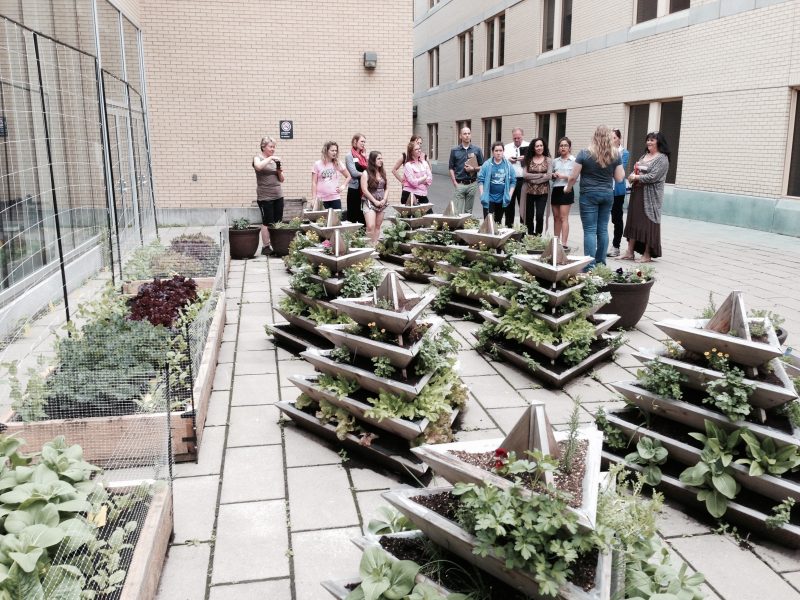
Sustainability has a strong presence at Dawson College, reflected in the many projects and initiatives undertaken in the past 10 years. Most recently, it has been noted as one of the foundational goals in the Dawson College Strategic Plan 2016-2021.
Building on its achievements, Dawson aims to become a leader in the field of sustainability in higher education institutions, guided by internal and external markers, such as its sustainability policy, and the AASHE Gold Standard of sustainability certification for institutes of higher education. Dawson researchers and faculty members have played an integral role in conceptualizing and implementing the core value of well-being for all, sustainably, at Dawson through their research on the related topics of sustainability, communities and education.
One of these is Living Campus, a concept that views the entire campus as a learning lab and integrates educational approaches under the vision of sustainable well-being. Chris Adam from Community Recreation and Leadership Training (CRLT), collaborated with Catherine O’Brien from Cape Breton University on an article published in the International Journal of Innovation, Creativity and Change last year which discussed Living Campus as part of the transformation of education and pedagogical practices towards a global vision of sustainable well-being. It is also the subject of a chapter in O’Brien’s book, Sustainable Happiness and Well Being (2016).
Dawson also has two ongoing research projects led by faculty members and funded by the Social Sciences and Humanities Research Council of Canada. One is Sustainable Campuses: A North South Research and Action Community, led by Gisela Frias and her colleagues at university partners in Mexico, facilitating student exchanges between Dawson and Mexico. The second is on Food Justice and Sustainability, led by Anna-Liisa Aunio and colleagues, focusing on connecting communities, research and policy for just sustainable food systems.
There are also several institutional grants on biodiversity at Dawson, funded by Entente-Canada-Quebec (ECQ). These ECQ grants include: The Honey Bee project, which uses social media to reinforce collective action on environmental challenges; Monarch Butterfly Tagging project, which is focused on biodiversity, experiential learning and environmental stewardship, and the Dawson Peace Centre, which includes Urban Habitat Restoration, Indigenous Art Boutique, and Tools for Peace in its Projects for Peace.
Dawson College one of Canada’s Top 50 Research Colleges for the 5th year in a row
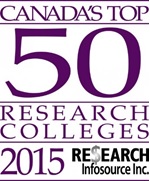 Research Infosource collects data on research income, partnerships, and faculty research activity each year; in October, they publish their list of the top 50 colleges and research universities. In data collected from 2014-15, Dawson College placed 37th on the list, with research funding of $1,655,500 and 35 active research faculty.
Research Infosource collects data on research income, partnerships, and faculty research activity each year; in October, they publish their list of the top 50 colleges and research universities. In data collected from 2014-15, Dawson College placed 37th on the list, with research funding of $1,655,500 and 35 active research faculty.
Dawson’s key research strengths include: studies on the inclusion of students with disabilities, the scholarship of teaching and learning, sustainability, and a number of high-impact researchers working on discipline-specific projects in math, history, physics, chemistry, and biology.
Catherine Fichten awarded the Prix Acfas Denise-Barbeau pour la recherche au collégial
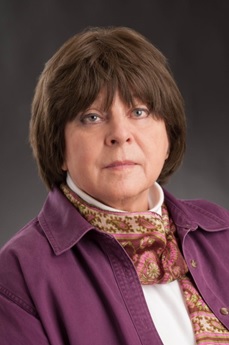 On October 18, 2016, the Association francophone pour la savoir (Acfas) announced during its annual gala in Montreal that Catherine Fichten from Dawson College is this year’s recipient of the Prix Acfas Denise-Barbeau pour la recherche au collegial. Dr. Fichten is the Co-Director of the Adaptech Research Network, which conducts research by, for, and with students with disabilities.
On October 18, 2016, the Association francophone pour la savoir (Acfas) announced during its annual gala in Montreal that Catherine Fichten from Dawson College is this year’s recipient of the Prix Acfas Denise-Barbeau pour la recherche au collegial. Dr. Fichten is the Co-Director of the Adaptech Research Network, which conducts research by, for, and with students with disabilities.
Dr. Fichten has two main areas of research. One is concerned with factors which help or hinder the inclusion of individuals with various disabilities in community life. She is interested in the role that higher education and information and communication technologies (ICTs) can play in allowing individuals with a variety of disabilities to participate fully in the Canadian mainstream. The second theme of Catherine’s research concerns sleep, insomnia, and sleep related aspects of behavioural medicine and health psychology. Her work has focused on the determinants and treatments of insomnia and other primary sleep disorders, and on sleep and daytime functioning in chronic fatigue syndrome. This research has had a profound impact on Dawson College, the college network and the field of psychology over the past 40 years.
The Prix Acfas Denise-Barbeau was created in 2014 in honour of Denise Barbeau, a pioneering pedagogue and college researcher. It is awarded each year to a college researcher in recognition of the excellence of their research and the visibility their work receives, both at home and internationally.
Two Dawson students awarded $5,000 summer research internship bursary from FRQNT
Congratulations to Alexander Hassler and Camille Valentin, Dawson College students and winners of FRQNT summer Cégep student research internship bursaries! Alexander and Camille will be awarded $5,000 each to support their work on scientific research projects in collaboration with researchers from Dawson and the Université de Montréal.
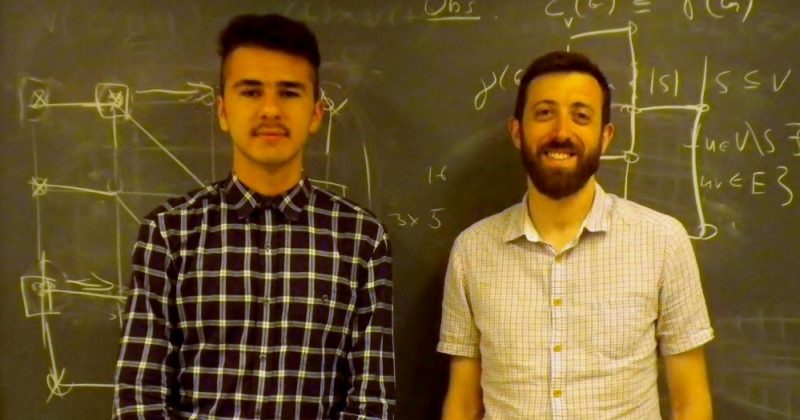 Alexander will take part in a research team studying pursuit-evasion games in networks at the Université de Montréal, under the supervision of Dr. Ben Seamone and Dr. Gena Hahn. An evader (the “robber”) moves from node to node in a network, while a set of pursuers (“cops”) attempt to capture the robber by occupying its current position. The team propose to further our understanding of the Cops and Robbers model, by studying how the game changes when a final target node is specified. This work has applications in the fields of robotics and network security. In Fall 2016, Alexander will start his second year in the First Choice Health Science program at Dawson.
Alexander will take part in a research team studying pursuit-evasion games in networks at the Université de Montréal, under the supervision of Dr. Ben Seamone and Dr. Gena Hahn. An evader (the “robber”) moves from node to node in a network, while a set of pursuers (“cops”) attempt to capture the robber by occupying its current position. The team propose to further our understanding of the Cops and Robbers model, by studying how the game changes when a final target node is specified. This work has applications in the fields of robotics and network security. In Fall 2016, Alexander will start his second year in the First Choice Health Science program at Dawson.
Camille will spend this summer working under the supervision of Dr. Latifa Lazzoumi in the laboratory of Dr. Franco Leporé, neuropsychologist at the Université de Montréal, and with the Brain Imaging Group of Dr. Hélène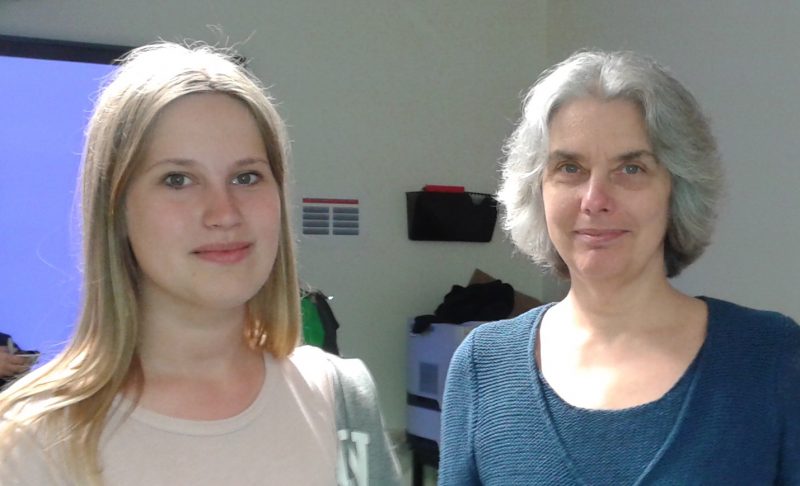 Nadeau, at Dawson College. Dr. Leporé studies how the brain adapts to sensory deprivation. Camille’s role in the project is to analyze structural, diffusion and functional magnetic resonance images to investigate how the connections in a brain that has been deprived of hearing for many years compare to those of a control group. Camille will continue her studies in the Health Science program at Dawson College in Fall 2016.
Nadeau, at Dawson College. Dr. Leporé studies how the brain adapts to sensory deprivation. Camille’s role in the project is to analyze structural, diffusion and functional magnetic resonance images to investigate how the connections in a brain that has been deprived of hearing for many years compare to those of a control group. Camille will continue her studies in the Health Science program at Dawson College in Fall 2016.
Congratulations to you both, and we look forward to hearing the results of these exciting projects!

Annual Research Report 2015-2016
We are very pleased to present the Annual Research Report, which showcases the transformative projects that dedicated faculty and staff researchers from the College engaged in over the past year.
Celebrate Research 2016
On Thursday May 19th, 60 members of the Dawson research community gathered in the College’s newest space, the CoLab, to recognize the accomplishments of our researchers and pedagogical innovators. Attendees included many outside guests, including research partners and members of the organizations who support college research. Thank you to all who attended, for your support of research at Dawson!
Adaptech’s Dr. Catherine Fichten awarded the Fred Strache Leadership Award from the Center on Disabilities at California State University
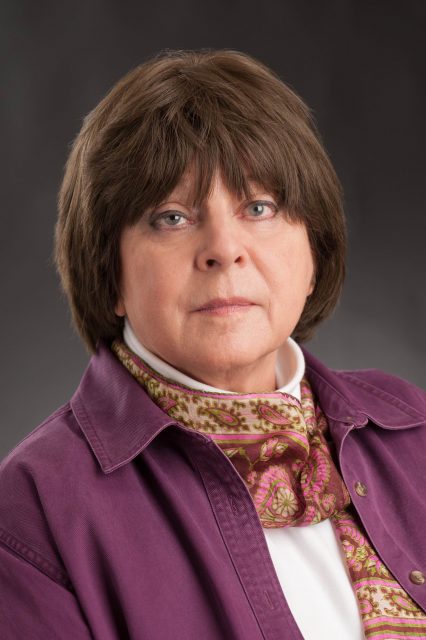
The Center on Disabilities at California State University, Northridge awarded Dr. Catherine Fichten its Fred Strache Leadership Award at the Annual International Technology & Persons with Disabilities Conference in March 2016. This conference, commonly known as the CSUN Conference, is the largest, oldest and only university-sponsored conference of its kind. It is now in its 31st year of providing an inclusive setting for researchers, practitioners, exhibitors, end users, speakers and participants to share knowledge and best practices in the field of assistive technology.
Each year, the Center selects a qualified candidate to receive the Fred Strache Leadership Award which is presented during the Keynote Address on Tuesday evening at our event. The Strache Award recognizes the leadership of the recipient in the fields of disability and technology. Specifically, the award acknowledges that the recipient continues to work with students as an educator and a mentor, while remaining a leader in their respective field through publications, presentations and research.
Catherine was recognized for her outstanding contributions to the field of disability research, education and technology as co-director (with Jennison Asuncion) of the Adaptech Research Network at Dawson College. The Adaptech Research Network is a team of academics, students and consumers who conduct research involving college and university students with a variety of disabilities in Canada since 1996.
Congratulations Catherine!
Dawson College one of Canada’s Top 50 Research Colleges for the 4th year in a row
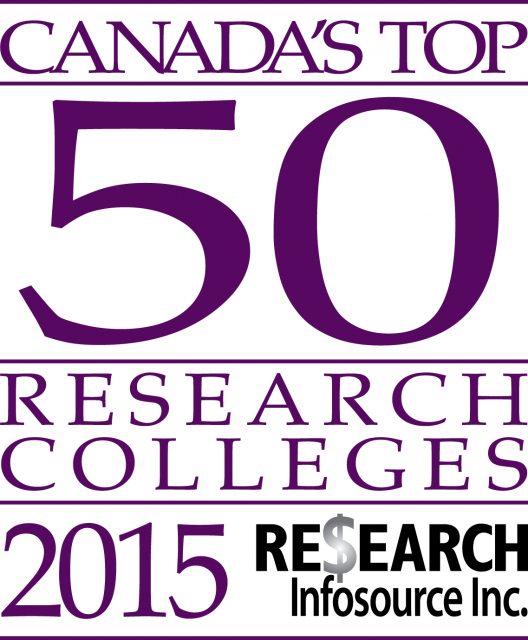
Research Infosource collects data on research income, partnerships, and faculty research activity each year; in October, they publish their list of the top 50 colleges and research universities. In data collected from 2013-14, Dawson College placed 46th on the list, with research funding of $912,000 and 22 active research faculty.
Dawson’s key research strengths include: studies on the inclusion of students with disabilities, the scholarship of teaching and learning, sustainability, and a number of high-impact researchers working on discipline-specific projects in math, history, physics, chemistry, and biology.
Strategic Research Plan 2015-2018
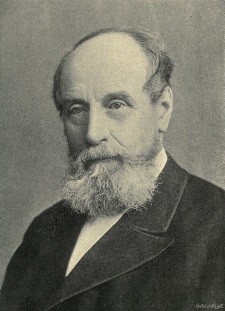
John William Dawson (1820-1899) was a passionate Canadian researcher and educator who excelled both at his disciplinary research (geology) and educational reform; he published extensively on Palaeozoic fossils, in addition to revolutionizing the architectural design of schools and reforming teacher education. Today, Dawson College carries on in these traditions of its namesake, producing high-impact research in the natural and social sciences, and compelling research on the scholarship of teaching and learning. The Director General mandated the creation of the Strategic Research Plan in August 2014 to develop a vision for the future of research at Dawson and articulate ambitious and measurable performance indicators. The Strategic Research Plan was developed in consultation with the Dawson community, led by the Research Coordinator and a focus group composed of faculty and professionals. Please click here to read Strategic Research Plan 2015-18.
Annual Review of Research Activity at Dawson 2014-2015
The Annual Review of Research at Dawson highlights the tremendous research endeavours achieved at the College over the past academic year. We are proud to share the accomplishments of our researchers and their collaborators from many other institutions. Over the past year, they have made significant contributions to their disciplines through outreach activities, publications, and involving students in their projects.









